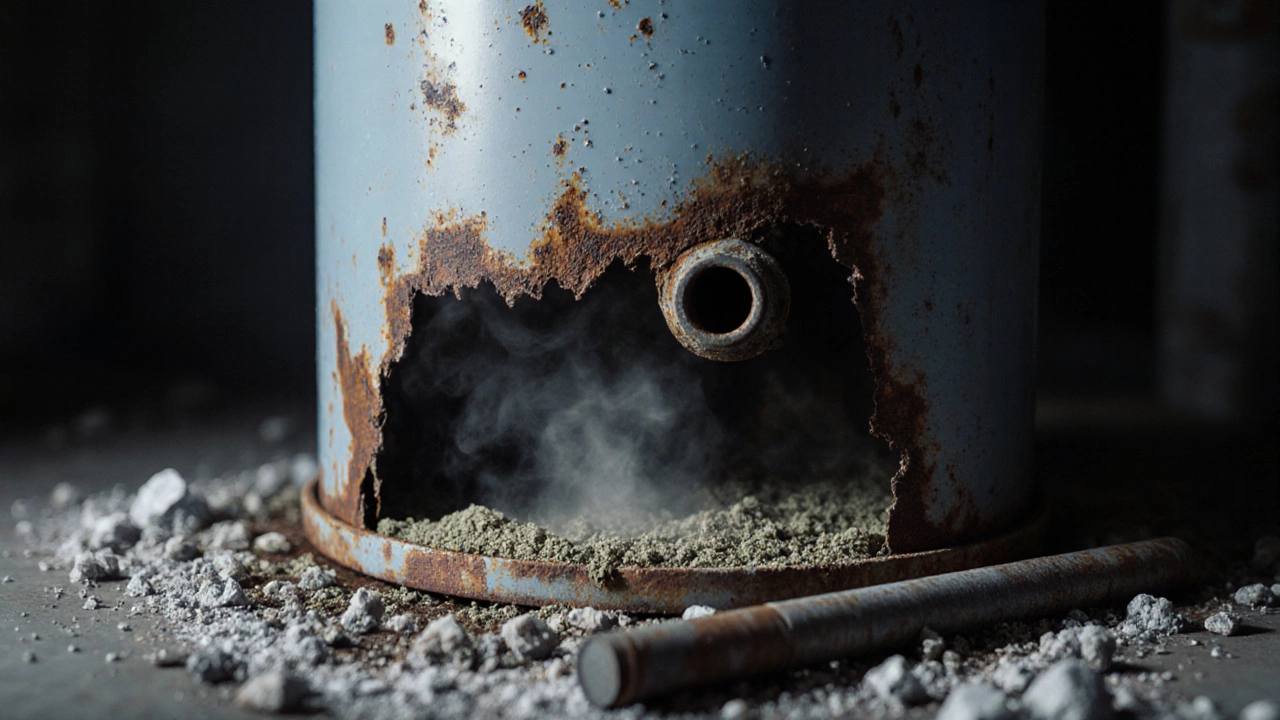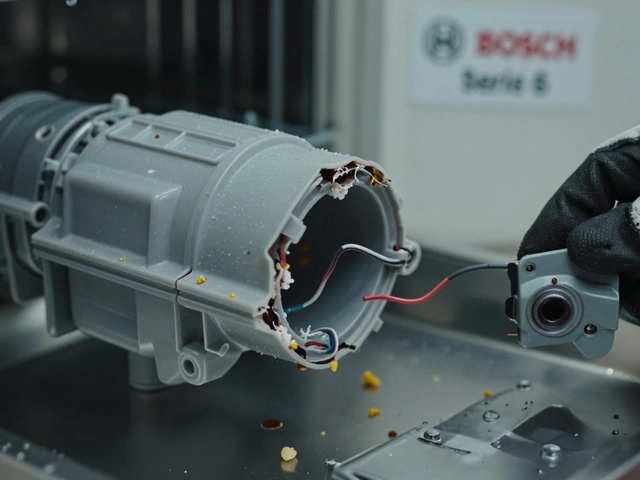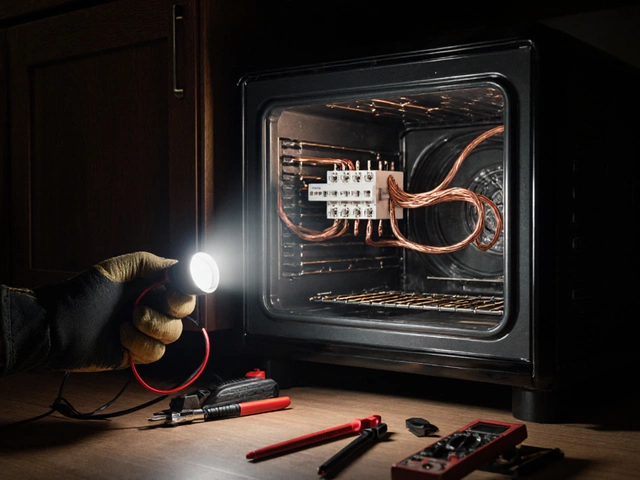Water Heater Lifespan Calculator
Enter Your Water Heater Details
How to Improve Longevity
- Set thermostat to 60°C
- Drain sediment every 6 months
- Replace anode rod every 2-3 years
- Test water pressure regularly
Correcting just one factor (like thermostat) can add 2-3 years to your heater's life.
Estimated Lifespan
0 years
Your water heater could last years longer with recommended maintenance.
Water heaters don’t last forever-but they shouldn’t die after just five years either. If yours gave out sooner than expected, you’re not alone. In Brisbane, where hard water and high usage are common, water heaters often fail far before their 10- to 15-year promise. The truth? Most failures aren’t bad luck. They’re preventable.
Hard Water Is the Silent Killer
Most homes in southeast Queensland have hard water. That means high levels of calcium and magnesium dissolved in the water. When that water gets heated, those minerals drop out and stick to the bottom of the tank. Over time, they build up into a thick layer of sediment.
This sediment does three bad things:
- It traps heat, forcing the heating element to work harder and burn out faster.
- It creates hot spots on the tank’s metal lining, leading to rust and leaks.
- It reduces how much hot water you actually get-your 80L tank might only hold 50L of usable water.
A 2023 study by the Australian Water Quality Centre found that homes with water hardness above 200 mg/L saw water heater failure rates 3.2 times higher than those with soft water. If you’ve ever heard your heater make popping or rumbling noises? That’s sediment shifting. It’s not just noise-it’s the sound of your heater dying.
The Anode Rod Isn’t Just a Part. It’s Your Tank’s Bodyguard
Every water heater has a sacrificial anode rod inside the tank. It’s usually made of magnesium, aluminum, or zinc. Its job? To attract corrosive elements in the water so they attack the rod instead of your steel tank.
But here’s the catch: that rod wears down over time. And most people never check it. By the time the tank starts leaking, the rod’s been gone for years.
In Brisbane, where water is often aggressive and mineral-rich, the anode rod can degrade in as little as 2 to 3 years. Yet manufacturers still tell you to leave it alone for 5 or 6 years. That’s a trap. If you haven’t inspected your anode rod in 3 years, it’s probably gone. And your tank is now unprotected.
Replacing it costs under $50. Not doing it can cost you $1,200+ for a new heater.
Thermostat Settings Are Making It Worse
Many people set their water heater to 70°C or higher, thinking hotter water means better cleaning or more comfort. But that’s a myth.
Water at 60°C is hot enough to kill bacteria and still be safe for showers. Anything above that just speeds up corrosion and mineral buildup. Every 5°C increase above 60°C cuts your heater’s lifespan by about 20%.
Higher temperatures also increase pressure in the tank. That puts extra stress on seals, valves, and welds. In fact, thermal expansion is one of the top three causes of pressure relief valve failures-leading to leaks or even tank rupture in extreme cases.
Set your thermostat to 60°C. If you need hotter water for dishwashers, let the dishwasher heat it on its own. Don’t make your heater work harder than it needs to.
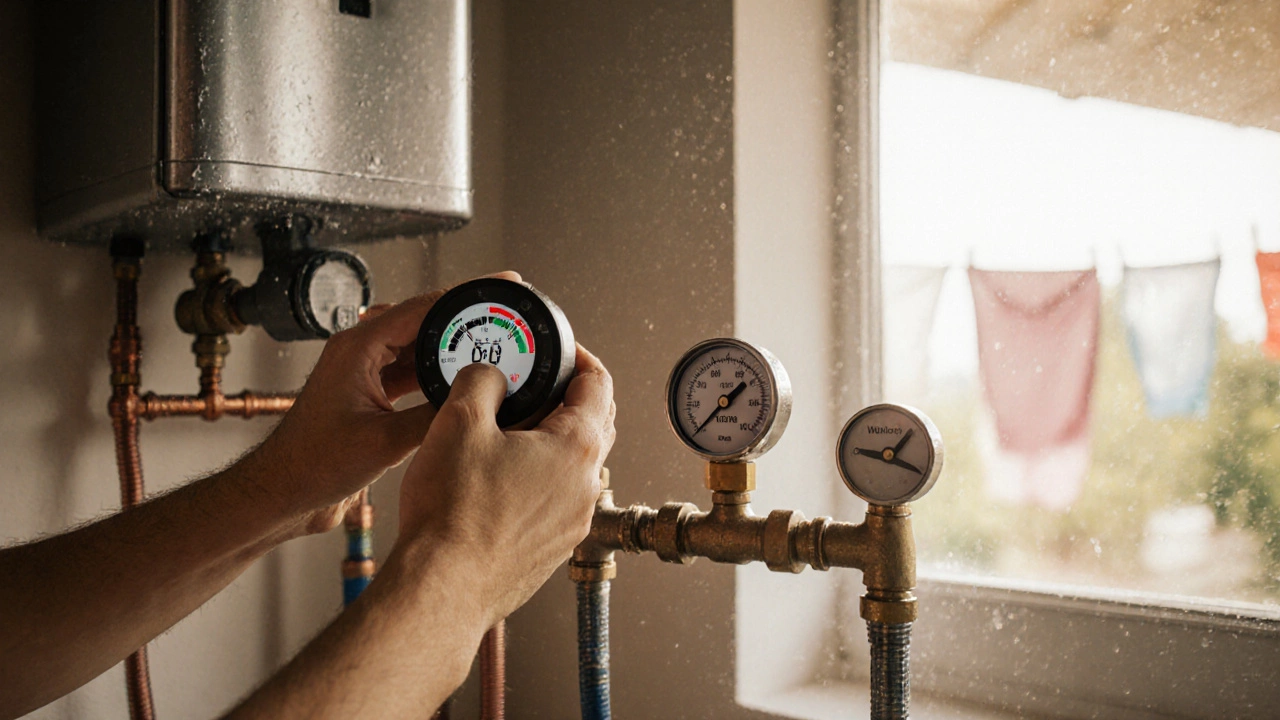
Pressure Problems Are Hidden But Deadly
Water pressure in Brisbane homes can spike above 800 kPa during peak usage or when the municipal supply adjusts. Most water heaters are only rated for 750 kPa. That’s a problem.
High pressure doesn’t always cause a loud bang or visible leak. Instead, it slowly weakens seams, gaskets, and the tank lining. Over months, it creates tiny cracks that turn into full leaks.
The fix? Install a pressure-reducing valve if yours doesn’t have one. It’s a simple device that costs under $150 and lasts 10+ years. If your water pressure is above 600 kPa, you’re at risk. Most plumbers can test it in under 15 minutes.
Age Isn’t the Only Factor-Usage Is
A family of four using a 50L tank will wear it out faster than a single person using a 100L tank. The more cycles your heater goes through-filling, heating, cooling, refilling-the more stress it takes.
Also, if your heater runs constantly because you’re running out of hot water, it’s cycling too often. That’s a sign the tank is too small. A 50L tank might be fine for one or two people, but four people need at least 80L. If you’re constantly waiting for hot water to return, you’re not just being impatient-you’re killing your heater.
Upgrade your tank size if you’re frequently running out. It’s cheaper than replacing a broken heater every 4 years.
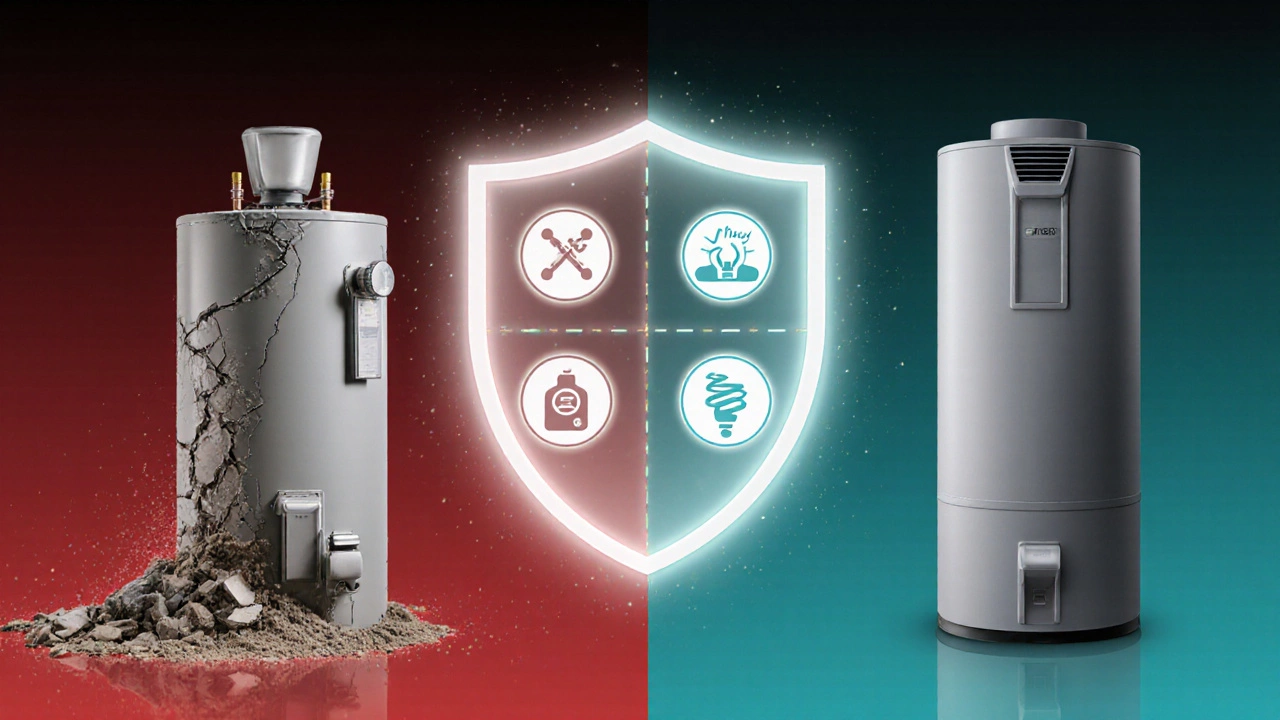
What You Can Do Right Now
You don’t need to wait for a leak to act. Here’s what to do today:
- Drain 5 litres from the tank’s drain valve. If the water is cloudy or has grit, you have sediment. Do this every 6 months.
- Check the anode rod. Turn off the power and water, drain the tank, and pull the rod out. If it’s thin, cracked, or coated in hard white deposits, replace it.
- Set the thermostat to 60°C. Use a thermometer at the tap to confirm.
- Test water pressure. Buy a $20 pressure gauge from a hardware store and screw it onto an outdoor tap. If it reads above 600 kPa, call a plumber.
- Flush the tank once a year. Even if you don’t see sediment, flushing removes fine particles that settle slowly.
These steps take less than 2 hours a year. They cost under $100. And they can easily double your heater’s life.
When It’s Time to Replace
If your heater is over 8 years old and you’ve never maintained it, replacement is likely the smarter move. But don’t just buy the cheapest one.
Look for:
- A tank with a 10-year warranty (not just 6)
- Thicker tank lining (5mm or more)
- High-quality anode rod (aluminum-zinc alloy lasts longer in hard water)
- Pressure relief valve that meets AS/NZS 2765 standards
And if you’re still on a standard electric tank, consider a heat pump water heater. They use 60-70% less energy, last 15+ years, and handle hard water better because they don’t rely on internal heating elements.
Most people think water heaters just break. But they don’t. They’re worn down by things you can fix. And if you act now, your next heater might last twice as long as the last one.
